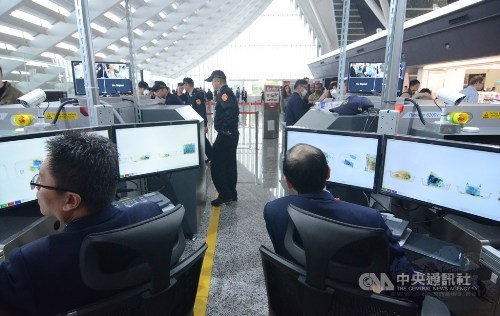
Taipei, Sept. 17 (CNA) In response to an outbreak of African swine fever (ASF) in South Korea, passengers flying into Taiwan from that country who are caught bringing in pork products will be fined a minimum of NT$200,000 (US$6,650) starting Tuesday noon.
"Check-in and hand luggage of passengers arriving from South Korea will be fully checked, with effect from noon," Bureau of Animal and Plant Health Inspection and Quarantine Director-General Feng Hai-tung (馮海東) told CNA by phone.
That makes Japan the only country in Northeast Asia exempt from the threat of ASF for the time being, he noted.
Visitors from ASF-affected and high risk countries/areas who attempt to bring pork products into Taiwan are subject to a fine of NT$200,000 for first-time offenders, while repeat offenders can be fined NT$1 million, according to regulations.
Since the first ASF outbreak in China in August 2018, Taiwan has intensified border inspections of meat products for fear that the spread of the ASF virus could cripple its high-value pig farming industry.
The baggage of passengers from China, Hong Kong, Macau, Vietnam, Laos, Cambodia, Myanmar, Thailand, North Korea, Russia and the Philippines are subject to X-ray checks when entering Taiwan, and passengers from Malaysia, Singapore, Indonesia and Brunei have received the same treatment since Sept. 6, the Central Emergency Operation Center for ASF said on its website.
Earlier Tuesday, South Korea reported its first ASF cases at a farm in Paju, a city near the border with North Korea, making it the latest country to be hit by the pig epidemic that has fanned fears and led to soaring pork prices in China.
There is no antidote or vaccine to cure the disease, and the only way to prevent it from spreading is to cull affected livestock.
Seoul's agriculture minister Kim Hyun-soo said 3,950 pigs from three farms in Paju are to be culled, according to an AFP report.
The confirmed cases in South Korea came around three months after Pyongyang, North Korea, told the World Organization for Animal Health that dozens of pigs had died from the disease at a farm in North Korea near the Chinese border, AFP said.